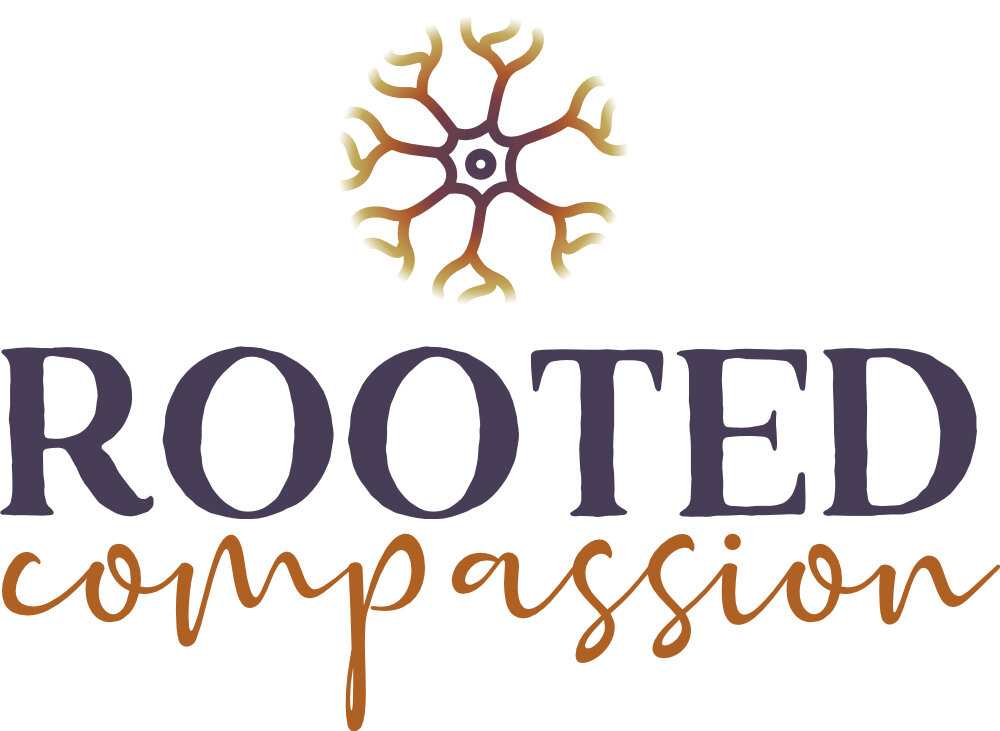Beauty Hunting to Enrich a Calm Nervous System
Catching up over a cup of hot coffee with my friend whom I’d not seen for a few years, we reminisced about how things were before the pandemic. We spoke of our families, our jobs, our joys and sorrows, hustle culture, burnout… the usual catch-up talk among friends. When I spoke of a special loss in our family eight months ago, tears welled up in my eyes and rolled softly down my cheeks. My friend immediately said, “it’s ok…you can cry with me”. I knew my tears would be honored and “safe” in her presence, not only because of our shared friendship history, but also because we both are in the people-helping professions, and we know the value of being non-judgmentally present with another.
My nervous system felt safe enough in her co-regulating presence to allow my eyes to “leak”, as another dear friend has humorously described crying.
While no one “wants” to cry in public, those tears pay tribute and honor the loss of someone/something we have valued, loved, cherished. My friend and I also agreed we are continuing to see collective grief and trauma, expressed in various ways, in our clients and around the world, and even within ourselves. As David Kessler, grief expert stated, “Collective grief reminds us of our humanity, and our fragility” (IG post, @iamdavidkessler, 6/22/23). In those moments over coffee, we gave sacred space to each other to share our humanity and vulnerability, and we both came away invigorated and encouraged.
While that time with my friend is now past, the memory of our time together is one that I bring to mind as I often practice “Beauty Hunting” (Kolber, 2020), which is similar to looking for “glimmers”. This term was coined by Deb Dana in her 2018 book, Polyvagal Theory in Therapy.
Dana describes glimmers as “small moments when our biology is in a place of connection or regulation, which cues our nervous system to feel safe or calm” (Moniuszko, 2022).
You see, while attending to grief and sad emotions is valid and essential and must occur in order to healthily mourn and grieve, we also need to experience beauty and goodness in order to heal. It is the “both/and” of two seemingly opposite ideas being true simultaneously. Kolber (2020, p. 129) writes, “...beauty is an invitation and a resource to each of us. When we hunt for beauty, we learn to pay attention,” and our attention can bring a sense of connection to others, ourselves, and to our world, along with other health benefits.
“What we pay attention to,
we remember, and what we remember
becomes our anticipated future.”
Curt Thompson, M.D.
Becoming a Beauty Hunter can build the capacity to see beauty, even amidst the hardships and challenges of life. It can build resilience and help us to cope with suffering.
It is important to remember that beauty is a personal perception, so allow yourself to seek out and enjoy the beauty that is meaningful to you.
It might be noticing the flowers of summer, or leaning into your pet as they warmly welcome you home. It could be taking an extra-long inhale of the sweet aroma of cookies baking in the oven or savoring the taste of that cup of java or tea. It might be hearing the voice of your loved one or seeing a silly text from a friend with a ton of heart and smiley emojis. Becoming a Beauty Hunter will cost you nothing and bring you so much vitality. Here’s a lovely butterfly to help inspire you to hunt for the beauty in life!
References:
Kessler, David. (2023, 6/22). Instagram post.
Kolber, Aundi. (2020). Try Softer: A Fresh Approach to Move Us Out of Anxiety, Stress, and Survival Mode–and into a Life of Connection and Joy. Tyndale.
Moniuszko, S.M. (2022) USA Today. “ ‘Glimmers’ are the opposite of triggers. Here’s how to embrace them.” Article retrieved online at https://www.usatoday.com/story/life/health-wellness/2022/03/23/glimmers-opposite-triggers-mental-health-benefits/7121353001/
Photo Credit:
Butterfly- Brenda Puckett
Brenda is a Licensed Professional Counselor who would love to join you in your growth process to address the challenges you or a loved one may be experiencing and to help you find the ways you want to move forward. She offers you the respect and acceptance you deserve, sharing her warmth and life experience, without judgment.
The Rooted Compassion team is made up of a group of counselors who have a variety of specialties in order to best serve our clients. We recognize that every person has his/her own personal and unique life experiences and that one modality will not work for every client. Listed below is a summary of our counselors’ specialties at Rooted Compassion:
Emotional Freedom Techniques
Grief Counseling
Somatic Focused Counseling
EMDR
Cognitive Behavioral Therapy
Dialectical Behavior Therapy
Mindfulness-Based Practices
Trauma Responsive Care Techniques
Acceptance and Commitment Therapy
Drama Therapy/Expressive Arts
If you are interested in learning more about what Rooted Compassion is all about, please contact us today, look through our website, or find us on Instagram and Facebook.
Rooted Compassion Counseling is Ohio’s leading practice for trauma therapy through the lens of the nervous system. Our focus is to walk alongside clients as they heal from depression, anxiety, trauma, grief and/or loss. If you or someone you know are seeking to explore and build an inner sense of calm and safety, please contact us today. We would love to help you to find a counselor and counseling techniques that will guide you on your mental health journey to healing.



